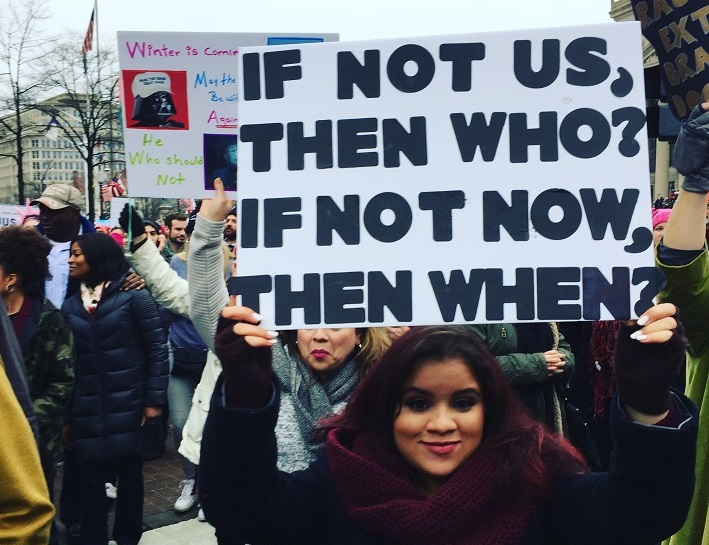
If not us, who? Lucy Duncan / AFSC
“There is no way out but to enter, there is no freedom without truth, there is no struggle without tenderness. The soil is poisoned, but sometimes blossoms open and the moment is a doorway into blue light.” – From a poem by Lucy
I went to the women’s march in Washington, D.C. this past weekend. It was exhilarating to be among the 500,000 people who came out for it. To be so many, so tightly packed, that we couldn’t properly march. It was powerful to flood the mall and the streets of D.C. to oppose the rise of fascism. There was an eerie exhilaration.
I am grateful for all who came out, many of whom have never before marched, never before participated in political action beyond voting. I am grateful for the newly awakened, those joining the movement to oppose the deeper levels of oppression we are about to face. I welcome each one to the struggle with an open heart.
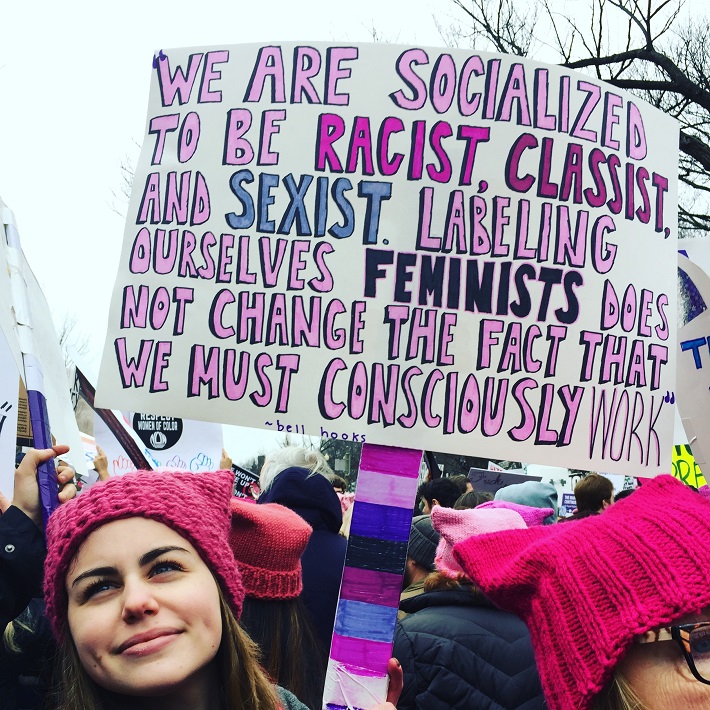
And being at the march was hard, too. I kept wondering – if this many had turned out for the myriad #BlackLivesMatter protests in the last few years, would Trump have been elected? If this many had shown up to support immigrants (2.5 million have been deported during Obama’s tenure) in the past few years, would we be facing massive expansion of this deportation apparatus now? If more of my white sisters had been talking with their families about Trump and white supremacy, examining their own and their family’s legacy of racism and the ways it had benefitted them, would we be seeing this super-charged expansion of white nationalism now?
Yes, you are late, but now you are here. Hope you come willing to open your heart and learn from all the veterans of this Lamb’s war that have been fighting for all of us for years, for decades, for centuries.
I came late, too. Though I have been struggling for racial justice in various ways for over a decade, it took lots of patient teachers—and much willingness to listen—for me to awaken beyond my white bubble and see the world more clearly, wherein the comfort of white folks is predicated on the oppression and exploitation of Black and Brown people. To recognize that you have been positioned as perpetrator and an agent of harm by the accident of your birth—that we as white folks are born with the stain and the benefit of that legacy—is painful.
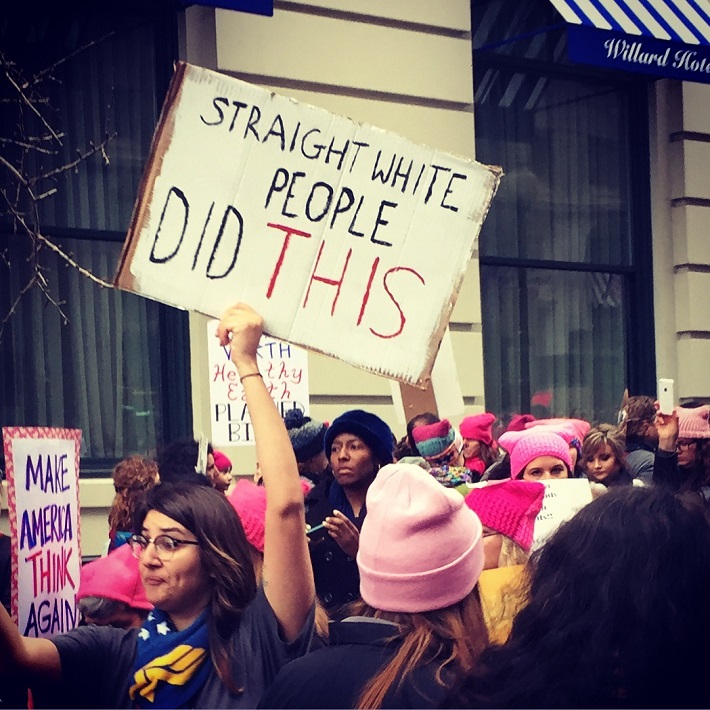
But the alternative is much more dangerous for ourselves and for others. The price of our ignorance and privilege is ears filled with cotton, hearts calcified with indifference, and losing our birthright of understanding ourselves as elementally connected to all. The price of our ignorance and numbness is deep injustice. This time around the price of so much ignorance and numbness was the election results: 53 percent of white women voted for Trump, perpetuating centuries of internalized oppression coupled with deep collusion with the system of white supremacy.
In the face of deep oppresion, valiant justice workers have been holding space for what white anti-racist activist Anne Braden called “the other America,” one manifesting and incarnating liberty and justice for all. Quaker Bayard Rustin said, “We need, in every community, a group of angelic troublemakers. Our power is in our ability to make things unworkable. The only weapon we have is our bodies. And we need to tuck them in places so wheels don't turn.” Such people have been struggling, often in the shadows, as long as there has been injustice.
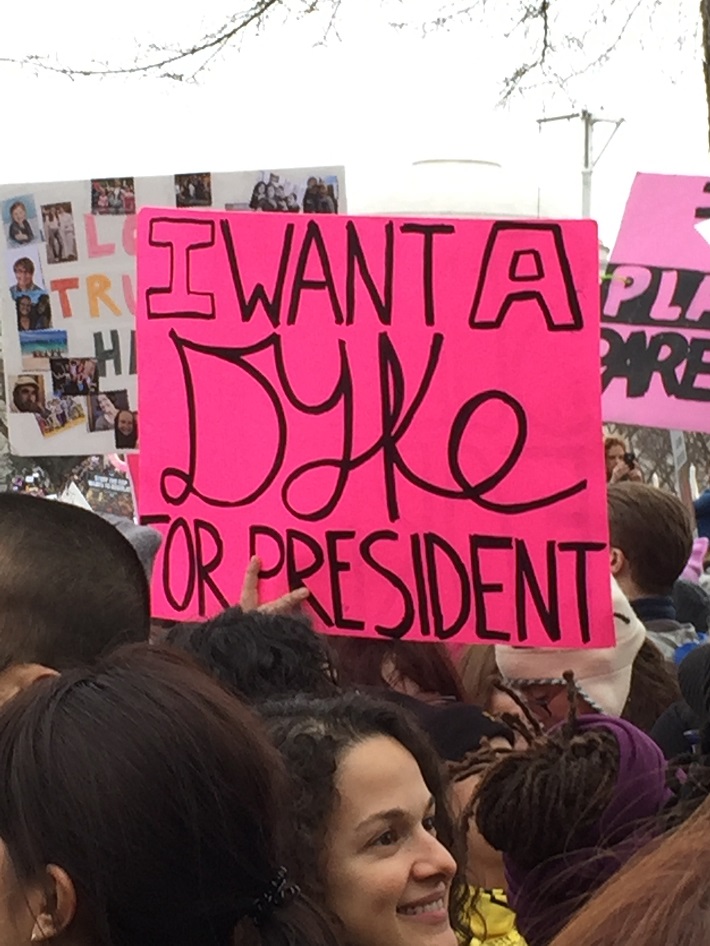
Now that you are here, find these veterans of the struggle. If you are able to come with humility, reach out to them, listen to them, don’t expect them to teach you, but learn from their wisdom. Examine your privilege, the way you’ve been socialized not to see. Open your eyes, you are late, but we need you.
The time is dark. It will get darker before the dawn. But my prayer is that this is the darkness, as Valarie Kaur said at a Watch Night service on New Year’s eve, of “the womb, not the tomb.” She also said that it is time for all of us to do what the midwife tells us to do during labor, “Breathe… and push.”
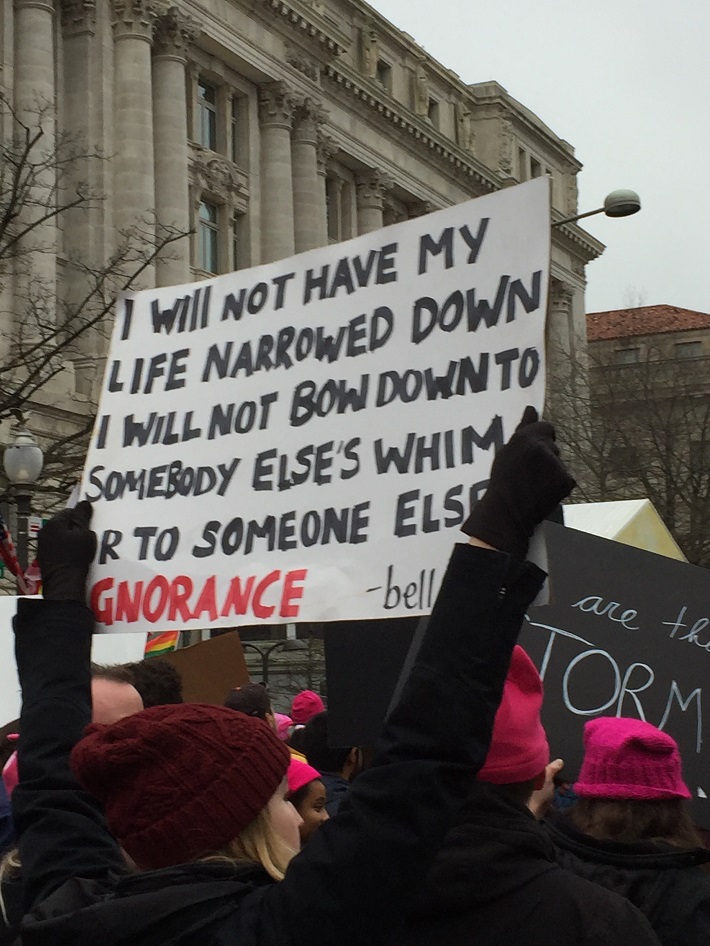
Here are some tips as you enter this work.
- Listen, listen, listen, then follow: Center the voices of women/people of color: listen and do what is asked of you. We are socialized as white women to take charge, to think our ideas are best. Stand back, listen, follow. Here’s a terrific article that goes into how to listen to support justice.
- Learn: Read books by women/people of color, learn about the legacy of liberation struggles from the people leading them from indigenous resistance movements to #BlackLivesMatter. Read anti-racist white folks from whose experience you can learn as well. AFSC has a terrific Denormalizing Whiteness for Racial Justice curriculum with online readings, and here’s a terrific reading list from Bustle Magazine to get you started. Don’t put people of color in the position of educating you, do your own homework, perhaps gather with other white people to educate each other and push through your discomfort together.
- Get involved: Seek out organizations led by people of color, form relationships with them, show up, and ask what you can do. Follow through. Keep coming back even when it’s uncomfortable. Follow these tips when you are in spaces or at events organized by people of color. Here are suggested ways to get involved.
- Offer #SanctuaryEverywhere: #SanctuaryEverywhere is the simple idea that everyday people can come together to keep each other safe. We’ve compiled many resources to assist you in skilling up to be there for those who will be most targeted in the coming months, and years.
- Show up for #BlackLivesMatter: AFSC has endorsed the Vision for Black Lives and suggests ways to get involved and resources to study.
- Disrupt Islamophobia: AFSC has pulled together this “Dos and Don’ts for Bystander Intervention” resource and 5 things your congregation can do to stop Islamophobia.
See you in the streets.